What to do to make the garlic large?
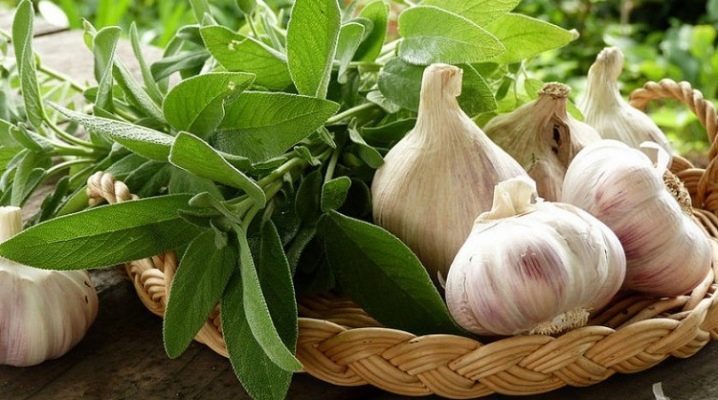
When planting garlic in their area, every gardener wants the vegetable to be large. But not everyone knows how to achieve this.
The choice of planting material
First of all, it is very important to use high-quality planting material. A few days before disembarkation, the heads stored at home must be sorted out. All products showing signs of rot or mold must be thrown away. Remaining specimens must be clean and dry.
For planting, it is worth choosing bulbs with large slices of the same size. If the teeth are small or fused, they should not be planted. After all, this indicates the degeneration of the variety.
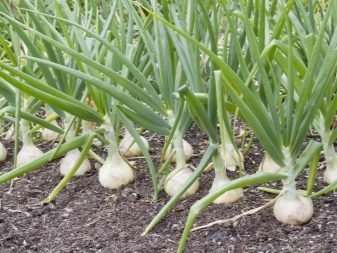
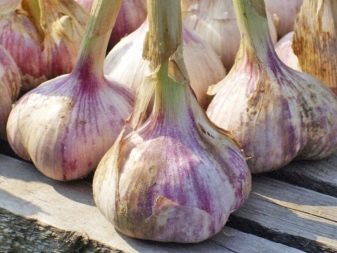
It is worth remembering that the quality of the crop depends on the varietal characteristics of the plant. To grow large garlic, you must use the planting material of the following varieties.
- Titanium... It is a popular variety of winter garlic. The teeth are covered with a purple skin. The garlic itself is white. It is such a vegetable that can be stored for a very long time. Its yield is also pleasantly pleasing. You can harvest a large amount of garlic even from a small area.
- Gulliver... This garlic is spring garlic. Its color is grayish. The average weight of one head is 130 grams. At the same time, good gardeners can grow larger fruits.
- Orlovsky... Such garlic is highly valued for its pleasant pungent taste and very good keeping quality. It's not too big. But in one head there can be about 18-20 large teeth.
- Casablanca... This popular variety of garlic originated in Holland. Now it has spread all over the world. Garlic is highly regarded for its large size and high yield. The weight of one medium onion is 200 grams.
- Broadleaf... The peculiarity of this garlic is its mild taste. The product is often used both in the preparation of ordinary dishes and in their canning. The average weight of garlic heads is 180 grams.
- Flavor... Spring garlic is not very large in size. But at the same time, it has an excellent shelf life. The harvested garlic can lie undisturbed for almost a year. At the same time, it almost does not dry out.
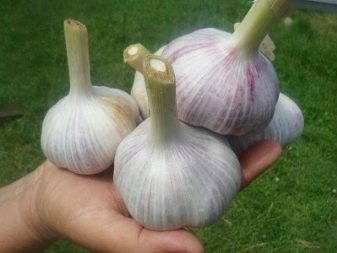
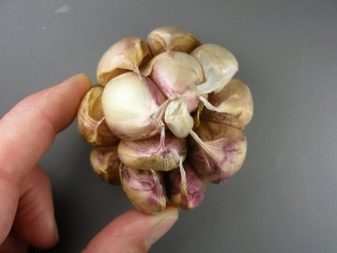
You should not constantly grow the same variety of garlic on the same site. This will lead to the fact that it begins to degenerate. Therefore, it is recommended to change the varieties from time to time.
It is important to properly process the garlic before planting. This process consists of the following steps.
- Disinfection... First you need to disinfect the garlic. To do this, it is placed in a container with a weak solution of copper sulfate. There he is left for half an hour. An infusion of wood ash can be used instead. Garlic is immersed in it for an hour. The main thing is that the ash used to process the garlic is clean.
- Hardening... Spring garlic must be hardened before planting. To do this, he is sent to a cool place for a couple of days. This makes it more resistant to temperature extremes.
- Germination... Spring garlic varieties are also germinated before planting. To do this, they are laid out in a moistened cloth bag. In this form, the planting material is left in a cool place for two days.
Prepared garlic will be able to adapt very quickly to new conditions. Therefore, the process of its germination will not take much time.
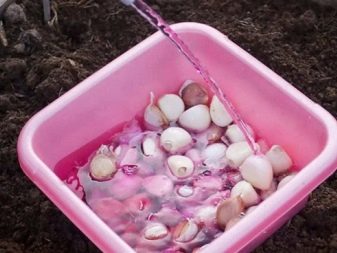
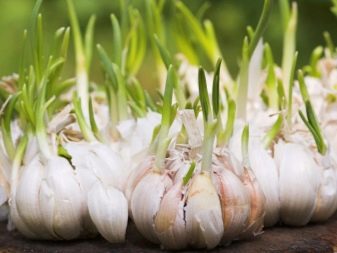
Landing nuances
In order for garlic to grow healthy and strong, the following points should be considered when planting it.
- Landing time... It is recommended to plant winter garlic in late September or mid-October.In this case, before the onset of frost, it will have time to take root. Summer garlic is planted as soon as the snow melts. This usually happens in late March or early April. If the head does not form before the onset of heat, it will definitely not be large enough.
- Appropriate place. Garlic is a light-loving culture. Therefore, it should be planted in sunny areas. The area where the garlic grows must be open. Before planting a culture, the soil must be dug deeply. It should be light and loose. It is also important that there are no weeds on the site.
- Landing scheme... When organizing the beds, it is necessary to make wide aisles. The distance between the individual teeth should be within 10 centimeters. In this case, it will be easy to care for the culture. In addition, there will be enough room for the garlic to develop normally.
- Crop rotation... It is very important to plant the garlic after the correct predecessors. It grows best in the area where green manure was previously located. It can also be planted after cabbage, squash, cucumber, peas and pumpkin. But after nightshade crops and root crops, it is never planted. This leads to the development of various diseases, as well as to a decrease in the size of the heads. The best neighbors for garlic are tomatoes and peppers.
In spring, garlic is planted to a depth of 3-4 cm... If the soil is still wet with melted snow, there is no need to water it. Otherwise, the site is irrigated 1-2 hours before planting. After planting the garlic, the beds are mulched with peat. In the fall, it is important to ensure that the garlic does not start to rot after planting. To do this, ash or sand must be poured into the grooves when landing. At the same time, the beds are not watered. To reduce the risk of freezing, garlic is planted to a depth of 5-6 centimeters. After planting, the holes are covered with earth, and then mulched with a dense layer of peat or rotted sawdust. Before snow falls, the area can be covered with spruce branches. After the snow melts, the shelter will need to be removed immediately.
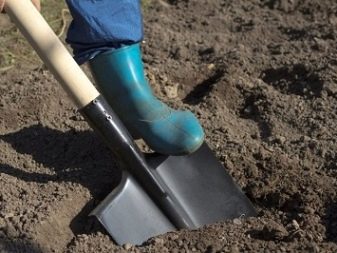
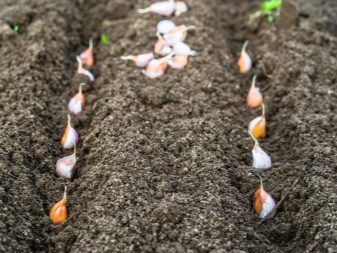
Necessary care
In the future, the garlic planted on the site needs to be provided with proper care. The agricultural technology of this culture consists of the following stages.
Watering
Garlic growing in the garden should be watered regularly. It is better to use warm water for this. This way the plants experience less stress. Typically, rainwater is collected in large barrels and infused. They irrigate the plot with it in the evening. Water the plants once every 1-2 weeks. In no case should waterlogging be allowed. This will lead to the development of fungal diseases and deterioration of the garlic.
You can save time on watering by covering the area with a layer of mulch. In this case, the beds do not have to be loosened too often. Most often, the area with garlic is mulched with straw or sawdust.
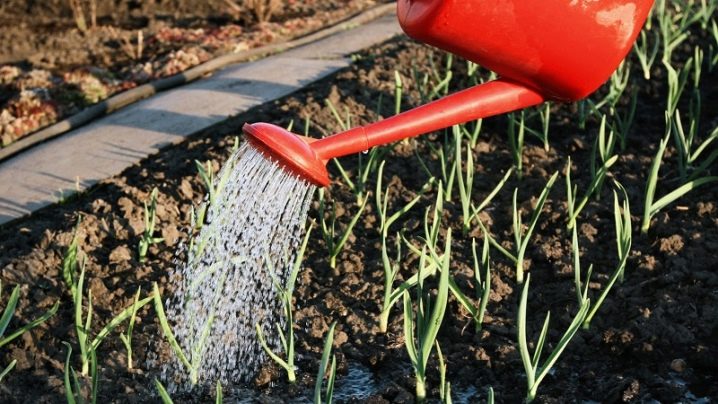
Top dressing
Timely feeding also plays a very important role in the cultivation of large garlic. Winter crops should be fertilized in the spring, immediately after the snow melts. Most often, urea is used for this purpose. If the garlic grows on nutritious soil, one feeding will be enough for it. Poor soils are fertilized 3-4 times per season. In the spring, top dressing with a high nitrogen content is embedded in the ground. In summer and autumn, products with phosphorus and potassium are used.
When growing spring garlic, top dressing is applied to the soil only twice per season. For the first time, fertilizers are applied in early spring. At this time, the garlic is fed with organic fertilizers with a high nitrogen content. Thanks to such feeding, he immediately grows. In the middle of summer, plants are fertilized with an ash solution. This remedy helps to make the chives look larger. In addition, it protects plants from pests and diseases. Ash can also be used dry. In this case, it is simply scattered on the site. The soil is then watered with warm water.
Do not apply too much fertilizer to the soil. An excess of nutrients negatively affects the yield.
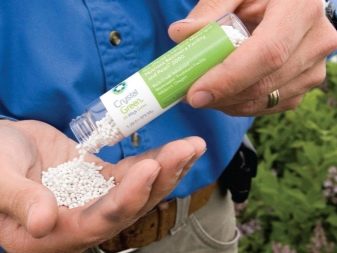
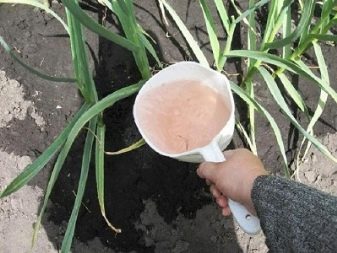
Loosening and weeding
In order for the garlic to grow quickly, the soil in the beds must be loosened regularly. In this case, water and minerals will flow faster to the plant roots. It is also important to remove all weeds during the loosening process, because they take away some of the nutrients that would be needed by the garlic.
It should be remembered that the roots of the plant are rather fragile, and after the garlic has released the arrows, it cannot be loosened. Otherwise, it will quickly turn yellow.
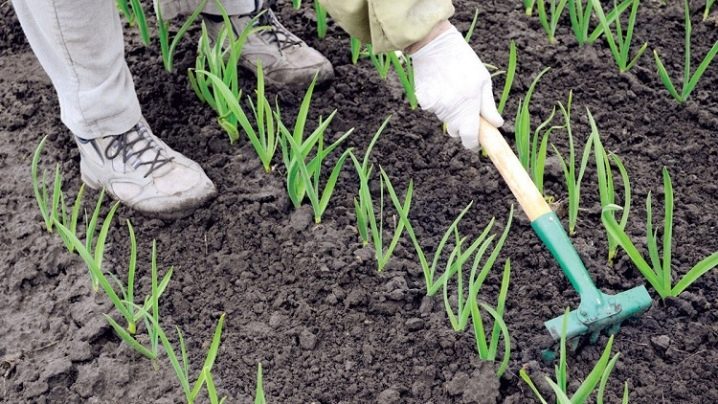
Protection against diseases and pests
If the garlic beds are affected by diseases, you should not expect a good harvest. Therefore, you need to learn how to quickly deal with common diseases.
- Downy mildew... As a result of the disease, the ripening process of the bulbs stops. If the plant is not cured in time, you should not count on a good harvest. Any proven fungicide is used to combat peronosporosis. If the disease has not yet hit the plants too much, you can treat the beds with milk whey diluted in a ratio of 1 to 10 with warm water.
- Rot of the bottom. This disease is characterized by the complete death of the root system. As a result, the bulbs begin to rot and the foliage turn yellow. Similar signs and in white rot. If the plant has been affected by one of these diseases, it will no longer be possible to save it. Therefore, it is very important to control the quality of the products used for planting.
In addition, garlic is often attacked by hookworms, onion moths and bears. Simple solutions with a strong repulsive odor will help protect the site from these pests. Usually, infusions based on nightshade tops or tobacco dust are used to fight insects. If the crop has been heavily infested with pests, store-bought insecticides should be used to control insects.
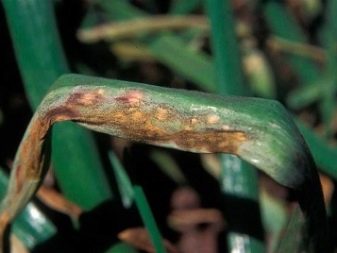
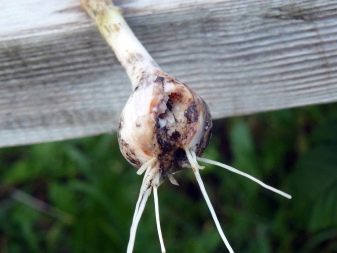
Useful tips and secrets of growing
The novice gardener will be helped by the recommendations of more experienced people.
- So that there are no problems with diseases or pests, before planting work and garlic, and it is recommended to disinfect the soil... For this purpose, a weak solution of potassium permanganate or copper sulfate is used. It is also important to dig the earth well.
- Novice gardeners, when choosing a variety for planting, can be guided by the advice of neighbors or loved ones. Indeed, different regions have their own characteristics of growing crops. So, for planting in cold regions, it is worth choosing varieties that are resistant to severe frosts. In hot areas, garlic is planted, which is not afraid of drought.
- Do not plant the cloves too deep. In this case, he will spend a lot of energy trying to get up to the sun. Therefore, for the formation of large heads, it does not have enough nutrients.
- About a month before harvesting, the soil from the heads must be carefully raked off. This will help redirect nutrients to the bulb. Thanks to this procedure, it will grow larger.
- Shooting must not be allowed... It is important to remove the emerging arrows before they begin to twist. In this case, the plant will not spend energy on the formation of seeds. All nutrients will go to the bulb. This procedure helps to increase yields by 20-30%.
If you follow these tips, you can grow really large and high-quality garlic in any area.
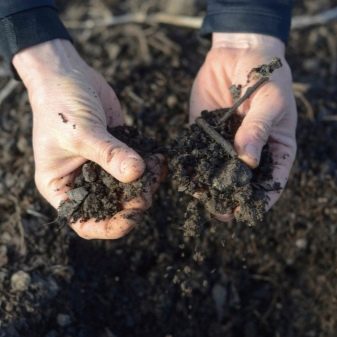
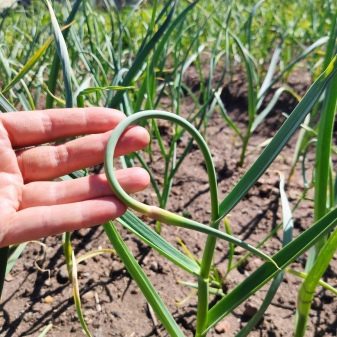













The comment was sent successfully.